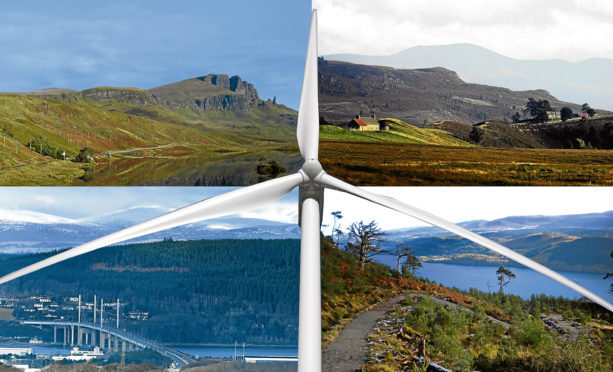Remote Scottish island communities have welcomed news the European Commission will not stand in their way when submitting windfarm plans in the next Contract for Difference (CfD) auction round.
A UK Government consultation launched last December sought to change the definition of remote island wind-energy in order that it might compete with larger developments.
While having enormous potential for electricity generation, thanks to strong winds, as well as new jobs and work for local suppliers, island windfarms face higher costs due to their location and transmission requirements.
According to the government, whose consultation runs until March 8, this makes them different from other onshore projects and suitable, therefore, for its CfD auctions. Under the CfD scheme, qualifying projects are guaranteed a minimum price at which they can sell their electricity.
The Department for Business, Energy and Industrial Strategy (Beis) has confirmed that bureaucrats in Brussels have no objections to the proposed change, suggesting there would be no breach of EU state aid rules.
Many people in Scotland’s remoter communities see renewable energy as vital to their economic and clean energy future.
A number of planned wind projects on Orkney, Shetland and the Western Isles totalling 750 megawatts are now a step closer to being eligible to compete in the third CfD auction round.
Western Isles MP Angus MacNeil said: “I am glad the European Commission has done what we expected it to do, ensuring that this process is rolling forward.”
Highlands and Islands Enterprise energy director Audrey Maciver said: “HIE, along with Shetland Islands Council, Orkney Islands Council and Comhairle nan Eilean Siar (Western Isles Council) have long pressed for a means by which efficient, cost-effective renewable electricity generation can be exported to the mainland electricity system, recognising the fantastic wind, wave and tidal resources of these islands.
“In doing so, significant economic and social benefits will be realised not only on the islands but across Scotland and the UK.
“This confirmation by Beis represents a step in the right direction, and we will continue to work with the developers as they progress their bids for the next Contract for Difference auction in spring 2019.”
A UK Government spokesman said: “We welcome the decision from the European Commission not to raise any objections to the government’s proposal on remote island wind.
“Clean growth is at the heart of our industrial strategy, which is essential to ensure that the demand for clean energy can always be met. We are committed to cutting emissions while keeping costs down for consumers, creating high-value jobs and growing the economy.”
The new proposal seeks to have island wind projects looked at as separate and distinct technology, allowing them to compete in CfD auctions for the first time. These projects would also set their own strike prices, separate from the UK.
